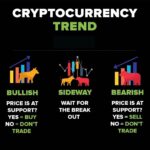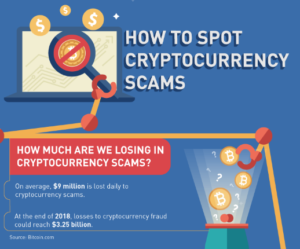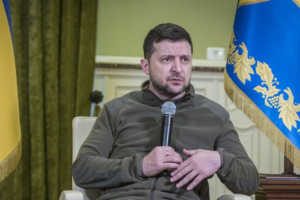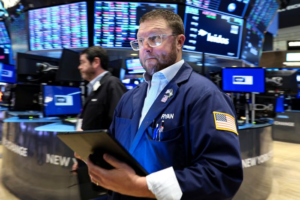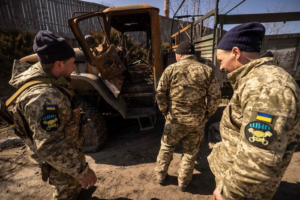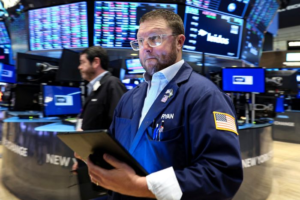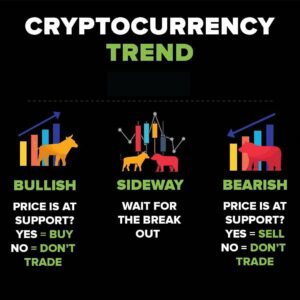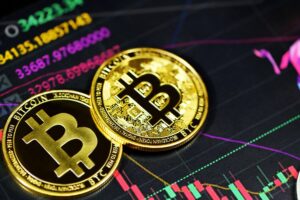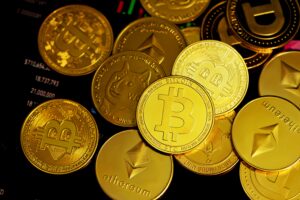

The shock of Russia’s invasion of Ukraine has shaken Europe’s democracies out of their complacency about geopolitical dangers. And the speed with which the European Union joined the U.S. in sanctioning Russia and arming Ukraine surprised the world.
Turning the initial European reaction into long-term strategies for the continent’s military and economic security is the hard part. EU leaders last week agreed on the goals of revamping military defenses and decoupling energy supplies from Russia to contain Moscow’s expansionism. How fast to move, and how to pay for it, are the subjects of debates now taking shape.
Among the obstacles to rapid change are national differences within the EU and fears about economic vulnerabilities. But the direction is set, given the horrors of the war in Ukraine and the consensus that Russian President
is a threat to European order, most observers say.
SHARE YOUR THOUGHTS
In what ways do you think Russia’s invasion of Ukraine will transform Europe? Join the conversation below.
“As long as public opinion is so strongly behind Ukraine, it’s very difficult for European leaders to backtrack. We’re moving towards a total isolation of Russia,” said Finland’s former Prime Minister Alexander Stubb.
Compared with the EU’s struggles to find common answers in previous crises, from sovereign debt to Covid-19, “this is probably the best crisis management the EU has ever done. When it’s a big crisis, the EU goes big,” Mr. Stubb said.
Mr. Putin’s quest to rewrite the outcome of the Cold War with bombs is likely to change Europe more profoundly than any event since the fall of the Berlin Wall, turning a bloc focused on economics into an all-round geopolitical actor. How fast such changes come depends on whether the current sense of urgency runs into the sands of political inertia—and on whether Mr. Putin escalates the war.
An EU leaders’ summit in Versailles late last week showed that the region still needs time to agree on far-reaching overhauls. “The war in Ukraine is an immense trauma,” and a spur “to completely redesign the architecture of our Europe,” said the summit’s host, French President
Emmanuel Macron.
He called for greater national and EU investments in energy, defense, food security and strategic industries.
The question of who will pay for strengthening Europe in those areas showed the persistence of internal divisions. Germany, the Netherlands and Sweden led opposition to France and Italy’s push for common EU funding. The northern countries want to rely on national resources and existing EU budgets.

Russia’s invasion of Ukraine has focused Europe’s democracies on geopolitical perils; a residential building ablaze Tuesday in Kyiv.
Photo:
Cover Images/Zuma Press
“Everybody was flabbergasted by how fast the first response was, how Europe got its act together. But now you see some signs of a return to navel-gazing and older divides over who is going to foot the bill,” said Catherine De Vries, political science professor at Bocconi University in Milan.
Others say the debate is just beginning. “Versailles was only the first discussion in building alignment among leaders about Europe’s strategic priorities,” said
Mujtaba Rahman,
European head at political-risk consulting firm Eurasia Group. “The aim was to get a consensus among leaders about the goals and the need for investment in those areas. Now the question is how to finance it.”
“Germany’s position of ‘every country for themselves’ is not sustainable,” Mr. Rahman said. “Not all countries have the same fiscal space. The plan needs an EU dimension to be credible.”
On Tuesday, EU countries agreed on a further set of economic sanctions against Russia, including curbs on energy-sector investments. The latest measures are less tough than Poland and some others wanted; Germany was among those advocating a more piecemeal approach.
Germany embodies how the EU’s response to the war has been decisive on some points but cautious on others.
When Russia’s attack on Ukraine began, German Chancellor
Olaf Scholz
called it “a watershed in the history of our continent,” suspended a new Russian natural-gas pipeline and announced an extensive program of German rearmament. Berlin’s U-turns also included sending weapons to Ukraine and backing EU sanctions against Russian banks.

An oil refinery in Schwedt, Germany on Tuesday.
Photo:
Patrick Pleul/Zuma Press
But Berlin has led opposition to sanctioning the bloc’s biggest business with Russia: buying oil and gas. Instead, EU leaders agreed last week to wean the region off Russian energy in the medium term. “The EU’s plan is realistic. Nobody views the Russians as a reliable supplier any more,” said Alexander Clarkson, lecturer in European studies at King’s College London.
A debate in Germany among lawmakers, economists, energy experts and foreign-policy analysts centers on whether the country should simply boycott Russian oil and gas. On Monday, German Economy Minister
Robert Habeck
said a full boycott would cause “deep economic and social damage,” painting a bleak picture of Germans losing their jobs and being unable to heat their homes or pay for electricity. Some German economists agree but others challenge the point, saying Europe’s biggest economy could handle it.
The war in Ukraine is already reviving the region’s other major institution, the North Atlantic Treaty Organization. Diagnosed by Mr. Macron as suffering from “brain death” in 2019, NATO is now seen as vital again in all of its European member states. Relations between European capitals and the Biden administration have improved compared with the tensions last year over Washington’s abrupt decision to withdraw from Afghanistan.
But many European leaders are nervous about the unpredictability of U.S. politics. France, in particular, argues that Europe needs to strengthen its defense capabilities to insure itself against the risk of U.S. disengagement from Europe.
“Right now, the Europeans are dealing with partners in the U.S. who have a strong commitment to Europe, but there is no certainty about what future U.S. presidents will do,” said Mr. Clarkson.
The war is redrawing politics in Europe in other ways, too. It has brought the EU’s eastern and western members closer together, as countries cooperate to deliver military aid to Ukraine and opinions on the need to contain Russia converge. For years, former Soviet satellites such as Poland and Estonia warned of Russia as a threat but were dismissed by politicians in Germany, France and Italy who argued for dialogue and trade with Moscow.

NATO Secretary-General Jens Stoltenberg and British Prime Minister Boris Johnson visited a military base in Estonia earlier this month.
Photo:
valda kalnina/Shutterstock
The war has strengthened incumbent leaders in some countries. Mr. Macron’s support has risen ahead of France’s presidential election in April, making a second term appear all but assured, while some of his challengers have lost voter support because of their history of praising Mr. Putin.
Mr. Scholz has won more approval from Germans since his “watershed” speech. And British Prime Minister
hold on power looks more secure as the war has overshadowed the “partygate” scandal that erupted over how he and his staff held social events while imposing Covid-19 lockdowns on the rest of the country. The war could lead to a rapprochement between the U.K. and continental Europe after tensions about how to implement Brexit. British Defense Secretary
Ben Wallace
has led London’s close cooperation with the U.S. and European countries in arming Ukraine.
“This crisis is reminding Britain of where its strategic center of gravity is,” Mr. Clarkson said.
Write to Marcus Walker at marcus.walker@wsj.com
Copyright ©2022 Dow Jones & Company, Inc. All Rights Reserved. 87990cbe856818d5eddac44c7b1cdeb8

